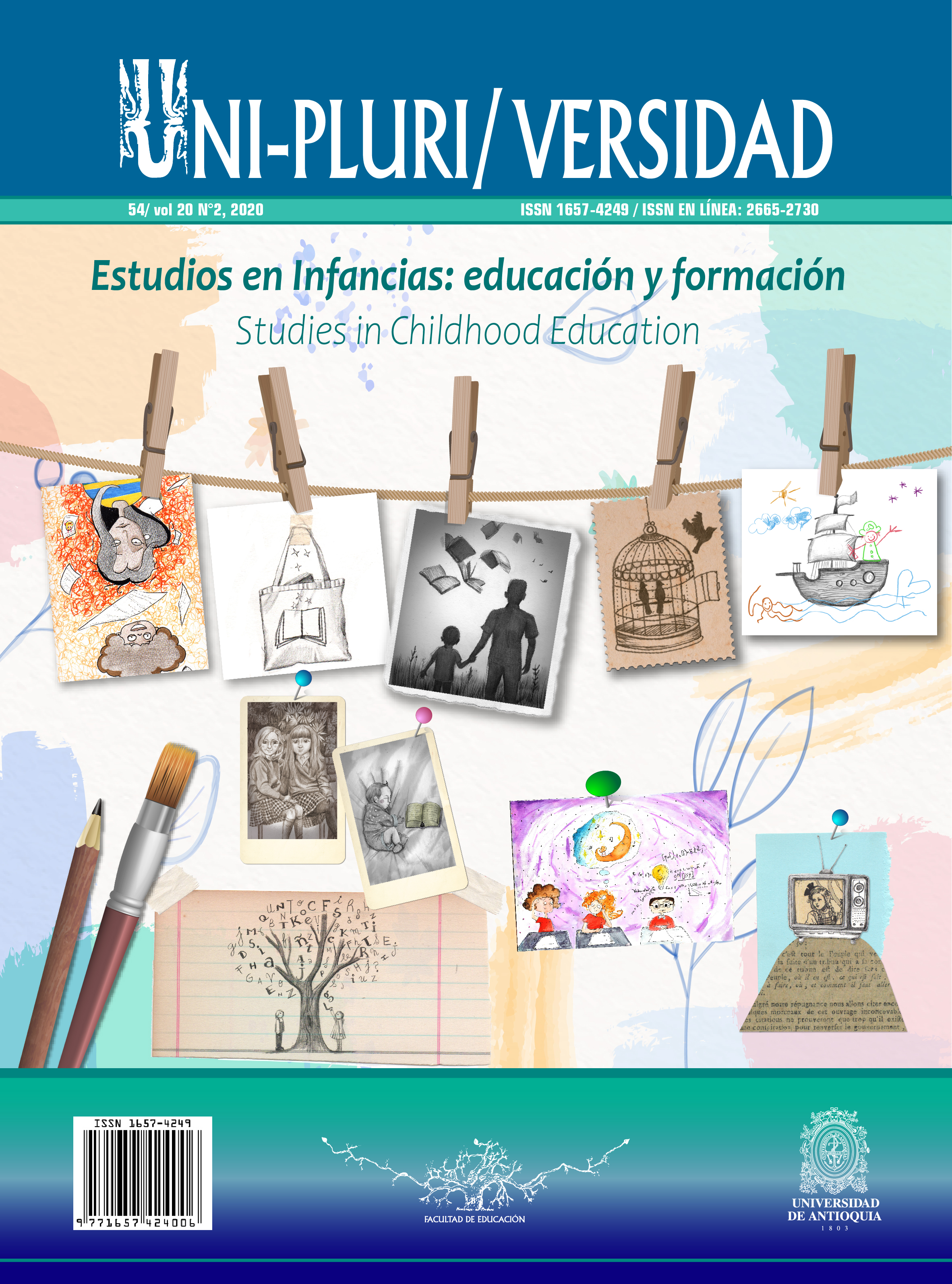Fundamentalisms, Interculturality and Educational Processes. Building Bridges Instead of Walls
DOI:
https://doi.org/10.17533/udea.unipluri.20.2.03Keywords:
intolerance, fundamentalism, interculturality, human rights, educationAbstract
This work presents different fundamentalisms which are gathering strength in our societies and their consequences, which favor rejection attitudes and behaviors against people considered different, threaten the human rights and the construction of the relations of acceptance and respect among different social groups. Its objective is to deepen the concept of fundamentalism and identify different types. It also proposes a position in front of this problem to promote a plural society and a democratic and intercultural citizenship education. This work integrates the research project about Interculturality, Ecology of Knowledge, and Educational Practices, developed by the Study Group on Daily Life, Education, and Culture of the Department of Education of Catholic Pontifical University of Rio de Janeiro (PUC-Rio), with the financial support of the National Council for Scientific and Technological Development (CNPq). This work is arranged in two parts. In the first part, there is an approach about what is fundamentalism, its origin and plural variety in the contemporaneity. From this context, in the second part, some educational strategies are presented to
build bridges of dialogue and mutual acceptance among individuals and social-cultural and ethnic groups, instead of building walls of hate, rejection and discrimination. Conclusions present some considerations to deconstruct the fundamentalisms by claiming human rights and intercultural citizenship.
Downloads
References
Arendt, H. (1989). A condição humana. Rio de Janeiro: Forense Universitária.
Arendt, H. (1979). As origens do totalitarismo. São Paulo: Companhia das Letras.
Boff, L. (2019). O projeto neoliberal no mundo e no Brasil é anti-vida e inimigo da natureza. Recuperado de https://leonardoboff.wordpress.com/2019/07/30/o-projeto-neoliberal-no-mundo-e-no-brasil-e-anti-vida-e-inimigo-da-natureza/
Boff, L. (2002). Fundamentalismo: a globalização e o futuro da humanidade. Rio de Janeiro: Sextante.
Brum, E. Doente de Brasil. El País, 02/08/2019. Recuperado de https://brasil.elpais.com/brasil/2019/08/01/opinion/1564661044_448590.html
Castrogiovanni, S.R. (2017). Educadores para la paz. Uni-pluriversidad, 17(2), 62–71. https://revistas.udea.edu.co/index.php/unip/article/view/334012/20789977
Córdoba, J. de T. América Latina. Fundamentalistas avanzan en congresos y gobiernos de la región. Recuperado de http://www.cadtm.org/America-Latina-Fundamentalistas
Cortina, A. (2017). Aporofobia, el rechazo al pobre. Un desafío para la democracia. Barcelona: Paidós.
Marcon, T. (2015). Fundamentalismo e Democracia: desafíos políticos e educacionais. Curitiba: EDUCERE.
Martínez García, C. (2004) América Latina y el fundamentalismo religioso. Recuperado de http://www.surysur.net/america-latina-y-el-fundamentalismo-religioso/
Panikkar, R. (1993). Religión (Diálogo intrarreligioso). In: Floristan, C.; Tamayo, J.J. (org). Conceptos fundamentales del cristianismo. Madrid: Trotta.
Francisco. Vaticano II (2015). Carta Encíclica Laudato Si. Sobre el cuidado de la casa común. Roma: Vaticano.
Sousa Santos, B. (2010a). Um discurso sobre as ciências. São Paulo: Cortez.
Sousa Santos, B.; Meneses, M.P. (2010b). Epistemologias do Sul. São Paulo: Cortez.
Sousa Santos, B. (2010c). Descolonizar el saber, reinventar el poder. Montevideo: Ediciones Trilce.
Sousa Santos, B. (1997). Uma concepção multicultural de Direitos Humanos. Lua Nova, nº 39, São Paulo.
Stolcke, V. (s.f.) Racismo y fundamentalismo cultural. Recuperado de https://www.lai.fu-berlin.de/ es/e-learning/projekte/frauen_konzepte/projektseiten/frauenbereich/stolcke/videos/antwort9/index.html
Tamayo, J.J. (2019a). Apologia do diálogo perante os fundamentalismos. In: Santos, B.S.; Martins, B.S. (org). O Pluriverso dos Direitos Humanos. A diversidade das lutas pela dignidade. São Paulo: Autêntica.
Tamayo, J.J. (2019b). El patriarcado “extremoduro” de las religiones. El País, 10/04. Recuperado de https://elpais.com/elpais/2019/04/09/opinion/1554827755_747922.html
Touraine, A. (2006). Um novo paradigma: para compreender o mundo de hoje. Petrópolis: Vozes.
Downloads
Published
How to Cite
Issue
Section
License
Copyright (c) 2021 Universidad de Antioquia

This work is licensed under a Creative Commons Attribution-NonCommercial-NoDerivatives 4.0 International License.
Authors who have publications in this Journal accept the following terms:
- The content of each article is the responsibility of its authors
- The author(s) preserve(s) the moral rights over the article and transfer(s) the patrimonial rights to the University of Antioquia, which can publish it or distribute electronic copies, as well as include it in indexing services, directories or national and international Open Access data bases, under the Creative Commons Attribution License (CC BY-NC-ND).
- The author(s) should sign a declaration of transfer of economic rights to the University of Antioquia, after the acceptance of the manuscript.
- Authors are allowed and advised to disseminate their work through the Internet (eg, institutional telematic archives or their website) before and during the submission process. That can produce interesting exchanges and increase citations of the published work.
- The author(s) has (have) the responsibility to arrange and get the necessary permissions to reproduce any material protected by copyright.











